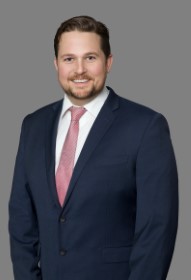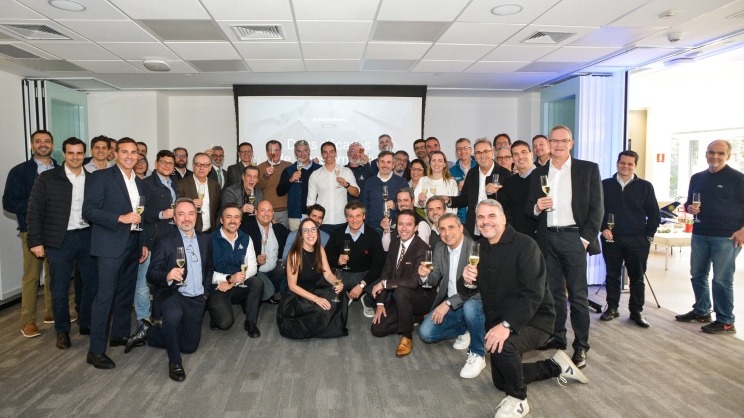Welcome Back Spotlight: Peyton Heath

A Senior Associate’s Perspective on Cultivating Connections and Capitalizing on Growth Opportunities
Peyton Heath is a Senior Associate with Alvarez & Marsal’s (A&M) North American Restructuring & Turnaround (NACR) practice in Dallas, Texas. He earned a bachelor’s degree from the University of Alabama.
In this Q&A, Peyton shares his motivation for returning to A&M, citing a desire for diverse deals and the influential personal connections forged during his initial tenure. Peyton emphasizes the critical thinking skills developed at A&M, seamlessly translating into his entrepreneurial ventures over the past five years. He offers insights into relationship-building, advice for professionals considering a return and how his overseas experiences contributed to adaptability in the professional world.
What factors inspired your return to the firm in December 2023, and how did they contribute to your decision to continue your career in consulting?
Over the past five years, I've been actively involved in managing a family business, an immensely rewarding experience. While this journey has been phenomenal, I reached a point where I yearned for the opportunity to engage in diverse deals spanning multiple industries and embrace the full spectrum of experiences that accompany such versatility.
The strong personal connections cultivated during my initial four years at Alvarez & Marsal emerged as a decisive factor in my decision to return. The client-facing nature of the role proved instrumental in fostering enduring relationships, and I consider myself fortunate that the connections established early in my career remained strong during my time away from the firm. The prospect of returning to collaborate with a network of reliable and talented individuals made the decision seamless. Additionally, the team-oriented and fast-paced environment at A&M further fueled my motivation to rejoin the organization.
Reflecting on your professional journey, can you share insights into the skills you refined or acquired while working at A&M?
I began my professional journey at A&M right after college, and looking back, I can't envision a more effective avenue for gaining expertise in financial analysis and business operations. The emphasis on critical thinking and the capacity to tackle challenges head-on, figure out solutions, and execute the necessary work have proven to be invaluable skills. These competencies, honed during my time at A&M, have seamlessly translated into my entrepreneurial endeavors over the past five years.
Having rejoined A&M in December 2023, what influenced your decision to return? Were there specific aspects of the A&M culture or opportunities that played a pivotal role in drawing you back?
The individuals I encountered and formed connections with during my initial tenure unquestionably influenced my decision to return. People inherently shape the culture of an organization, and I am genuinely thrilled to rejoin this community. From an opportunistic standpoint, I've always appreciated and valued the dynamic nature of restructuring—where no day, month or deal mirrors another. It's the inherent diversity in this field that sparked my enthusiasm to come back to A&M.
How Did Mentorship Support Your Professional Development?
Who are the individuals you consider your closest mentors, and what valuable lessons have you learned from them?
I consider myself fortunate to have multiple mentors in my life, with one of the most influential being my father. Through our collaborative efforts over the years, he has imparted firsthand lessons on inspiring and leading a team, managing pivotal relationships and navigating the day-to-day intricacies inherent in running a business. Additionally, during my initial tenure at A&M, I worked with several senior leaders who played integral roles in my professional development. These individuals, whom I regard as valuable mentors, significantly shaped my understanding of leadership and business dynamics.
What Role Does Fostering Relationships Play in Consulting?
Share your approach to building and sustaining relationships with colleagues and clients. How do these relationships contribute to your effectiveness and success in your current role?
My approach to cultivating relationships has consistently centered around demonstrating respect, being fully present and fostering a team-oriented mindset. In a role where collaboration is intense and high-pressure situations are not uncommon, solid relationships naturally evolve when everyone is dedicated to a shared goal with a unified mentality.
Maintaining these connections can be as straightforward as investing 30 seconds to send a quick text to someone you have not recently caught up with. Nurtured relationships significantly contribute to success, especially when putting in long hours. The work becomes more enjoyable and manageable when you have strong working relationships.
What advice or insights would you offer for professionals contemplating a return to A&M or rejoining a former employer based on your experience?
Individual circumstances vary, and in my case, the decision was straightforward. Departing from A&M wasn't fueled by dissatisfaction but was driven by a distinctive opportunity. There's a unique value in returning to a company where established relationships exist and where you're familiar with the company culture—something I deeply appreciate.
How have your experiences living overseas, such as in Africa during middle school, Australia for high school and extensive travel to London for a client, influenced your perspective and approach to your professional life?
Such experiences serve as valuable lessons in cultivating comfort with change. The capacity to adjust and adapt becomes an asset when faced with the diversity inherent in each new deal or situation encountered.
Can you share specific examples of challenges you faced while living in different countries and how overcoming them has contributed to your adaptability in the professional world?
The absence of consistency in one's environment or relationships may pose challenges. Yet, consistently immersing oneself in new places cultivates the ability to swiftly adapt to unfamiliar professional situations.



